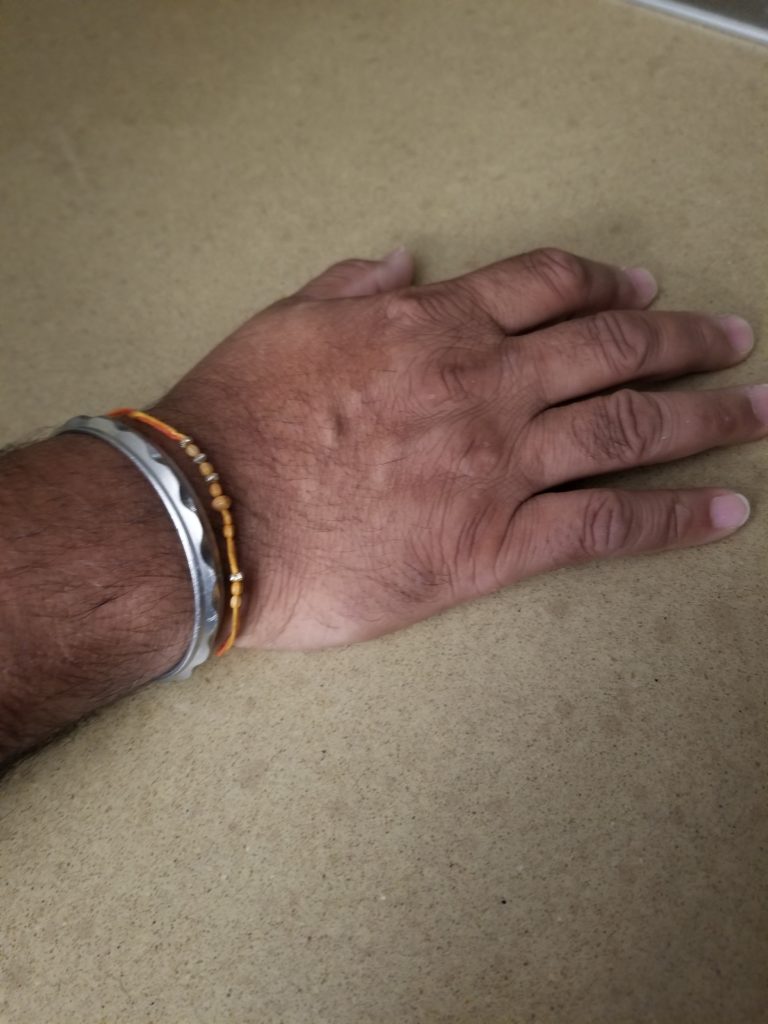Last week brothers and sisters around the world celebrated Rakshabandhan, a special day to honor the bond between brothers and sisters. I’m late to the game writing about, true to my character, but better than never.

Deep family bonds are a hallmark of Indian culture. When I met my husband and found out that he had parents, siblings, cousins, aunts, uncles, extended relatives, and family friends who considered him close family and who were constants in his life, my reaction was twofold. Envy and resentment. I envied his family’s bond, because I did not enjoy such a thing in my own family. I was also resentful of my husband’s bond, because it interfered with our relationship, and I was initially barred from inclusion in the mix by virtue of my non-Indianness.
However, I cherished for him his bond with his sister. She’s a magnificent soul and my heart leaps that they have each other. For over three decades, thousands of miles have separated them, but Rakshabhandan reminds them of each other in a beautiful way.
Here’s the short and sweet version of what I know about Rakshabandhan. A sister ties a beaded string bracelet called a Rakhi around her brother’s wrist and prays for his health and prosperity. A brother then present her a gift and promises her protection. He wear the Rakhi until it frays and falls off.
In India, communities celebrate a Rakhi festival, but we’re in the United States, so I’ve never experienced one.
When my kids were growing up, my mother-in-law shared Rakshabandhan with my kids. One daughter with four brothers made for opportunities for her to rake it in and be surrounded by protectors. As the years passed and we became less involved with Indian traditions, the effort faded away. Four of them are adults now living their own lives across the country from one another. But, even without the Rakhis and gifts, I believe my kids grew up with the loving spirit of the brother/sister relationship.
My husband doesn’t wear his sister’s Rakhis. But it’s not because he doesn’t cherish his sister’s love. On the contrary. He keeps it with him every day in his wallet because it lasts longer. My boys don’t get them from their sister, but they take care of each other when they need to. I still have one living brother and am at peace with the relationship we have now.
Like many aspects of Indian culture that were so foreign to me in the beginning, Rakshabhandan is in a way a lovely part of my life. My spirit soars because of my family. Rakhi or no Rakhi.